Female heroes of Europe’s mental health
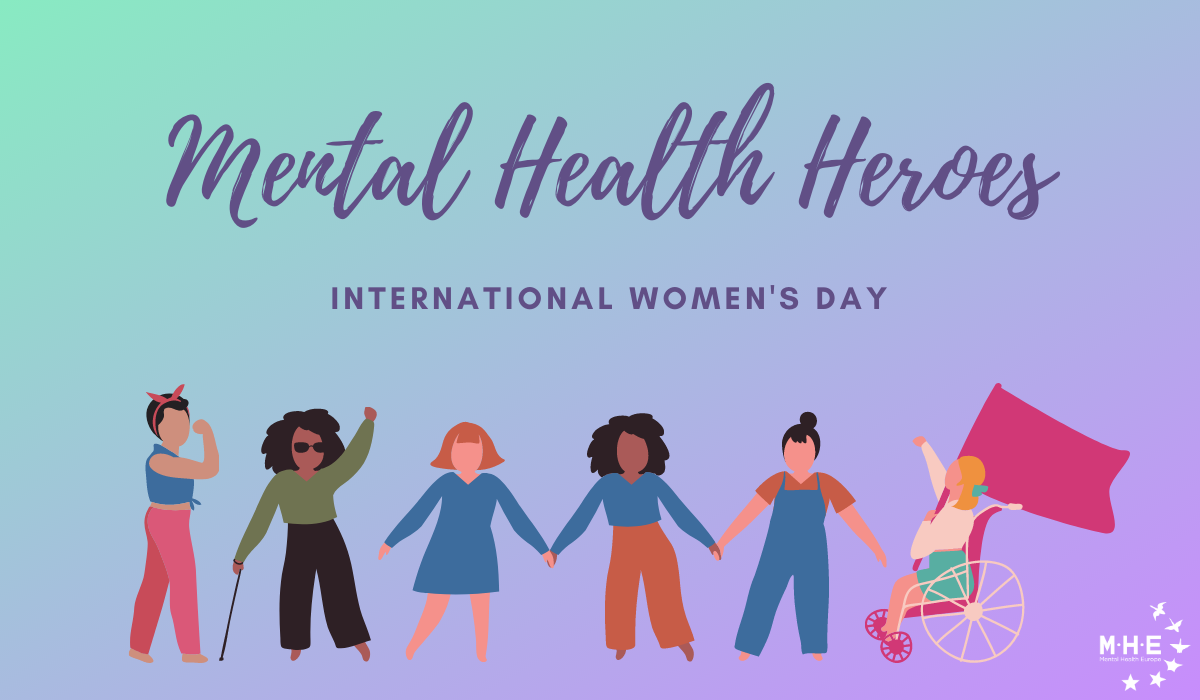
To mark International Women’s Day, Mental Health Europe (MHE) is celebrating female heroes in Europe’s mental health – women who advanced the field of mental health in recent years and those who were pioneers throughout history. Every day, women across Europe interact with the mental health system in various ways: as service users, service providers, caregivers, and advocates. Today, we celebrate all of them!
1. Dominique de Marné, Germany
Dominique is a mental health activist and a campaigner. She channels her passion for fighting the stigma surrounding mental health through her work as MHE’s Senior Policy Advisor for Youth and CEO of Mental Health Crowd (MHC), a social enterprise. Next to school projects and workshops, MHC has launched a mental health café in Munich. The first of its kind in Germany, the café is a safe space for hosting events about mental health or simply catching up with a friend over a coffee. Additionally, Dominique shares her lived experience of Borderline Personality Disorder and advocates for a more open-minded discussion about mental ill health. In her TED Talk “Let’s talk about mental health”, she gets candid about the importance of looking after your mental health and de-stigmatising talking about it.

2. Alviina Alametsä, Finland
Alviina is an outspoken advocate for mental health and a member of the Greens/EFA group in the European Parliament. As a co-chair of MHE’s Coalition for Mental Health and Wellbeing in the European Parliament, she aims to grant everybody in Europe access to mental healthcare, and build better mental health policies.
When she was 15, Alviina experienced a traumatic school shooting situation after the attacker had been denied mental health treatment. Alviina and her friends also struggled to get help for mental health issues that emerged, and she learned how crucial access to treatment is.
She started reforming mental healthcare in her home country by leading a Citizens’ Initiative campaign. As a City Councillor in Helsinki she introduced a concept of free, walk-in mental health clinics, and the first two opened in 2019. The city is planning to expand this model to the whole of Helsinki, as the open clinics have been such a success in treating and preventing mental health problems.

3. Guadalupe Morales, Spain
Guadalupe is the director of Fundación Mundo Bipolar in Spain, a non-profit organisation protecting the rights of persons with mental health problems. She uses her personal journey to amplify the voices of people with lived experience of mental health problems in mental health reform initiatives more consistently – both at the national level in Spain and across the EU. She is deputy Chair of the European Network of (-Ex) Users & Survivors (ENUSP), Member of European Disability Forum (EDF), Women Committee Commissioner of Lancet Commission on Stigma and Discrimination in Mental Health. For many years, Guadalupe has strongly advocated for implementing the United Convention on the Rights of Persons with Disabilities (UNCRPD) and meaningful involvement of persons with psychosocial disabilities. Moreover, she pioneered peer-to-peer trainings following the UNCRPD and Human Health Risk Resources (HHRR) guidelines. She is also a journalist and has university teaching positions in the USA, Spain and Portugal.

4. Praveetha Patalay, UK
Praveetha Patalay is an Associate Professor at the University College London (UCL) and leading researcher of mental health. Her research explores the development, risk and protective factors and consequences of mental ill-heath, how to reduce stigma around mental ill-health and promote wellbeing. She investigates mental health throughout different life stages and evaluates school-based intervention programmes to promote young people’s mental health. She has received the British Psychological Society’s Award for Outstanding Doctoral Research Contributions to Psychology and was celebrated on Forbes’ 30 under 30 list for Science and Healthcare. In 2018, she held a TED Talk about “Rethinking Mental Illness”, in which she outlines the shortcomings of how we classify, research and resource mental health and why we need to rethink this.
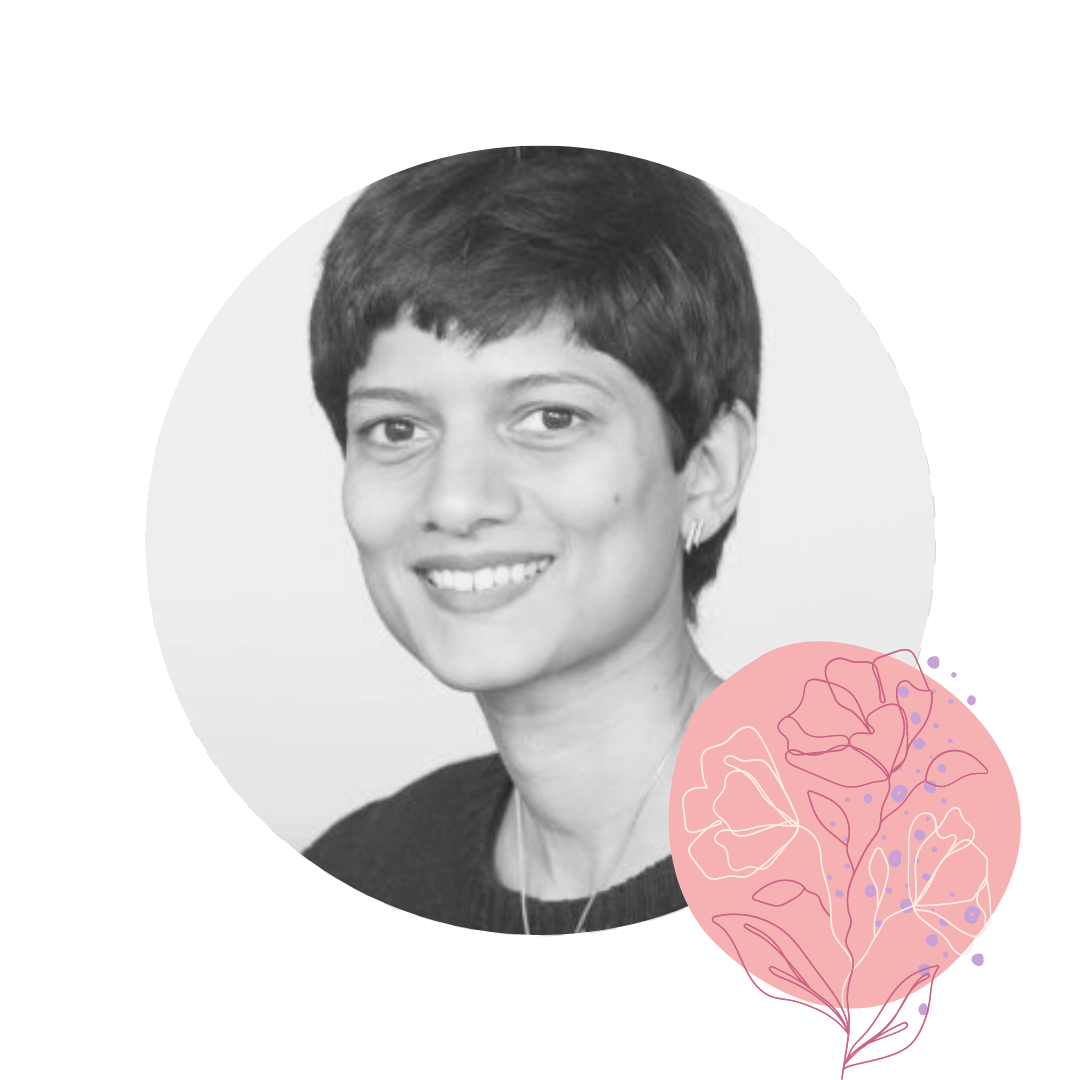
5. Regina Bisikiewisz, Poland
Regina Bisikiewisz has worked tirelessly to reform the mental healthcare system in Poland. After her son had a psychotic episode in 2005, he spent the next six years in seven different institutions where he was perched together with others into overcrowded wards and tranquilized with medication. Unwilling to accept the status quo, Regina took matters into her own hands and established the Polish Institute for Open Dialogue (PIOD) in 2011. An alternative to traditional mental health support, Open Dialogue (OD) promotes open treatment meetings with persons with psychosocial disabilities, their family, and social network to mobilise psychological resources for recovery. Together with a team of dedicated colleagues, Regina has been advocating to change the Polish government’s mental healthcare policy. What started as a mother’s wish to help her son turned into a national mental healthcare reform movement.
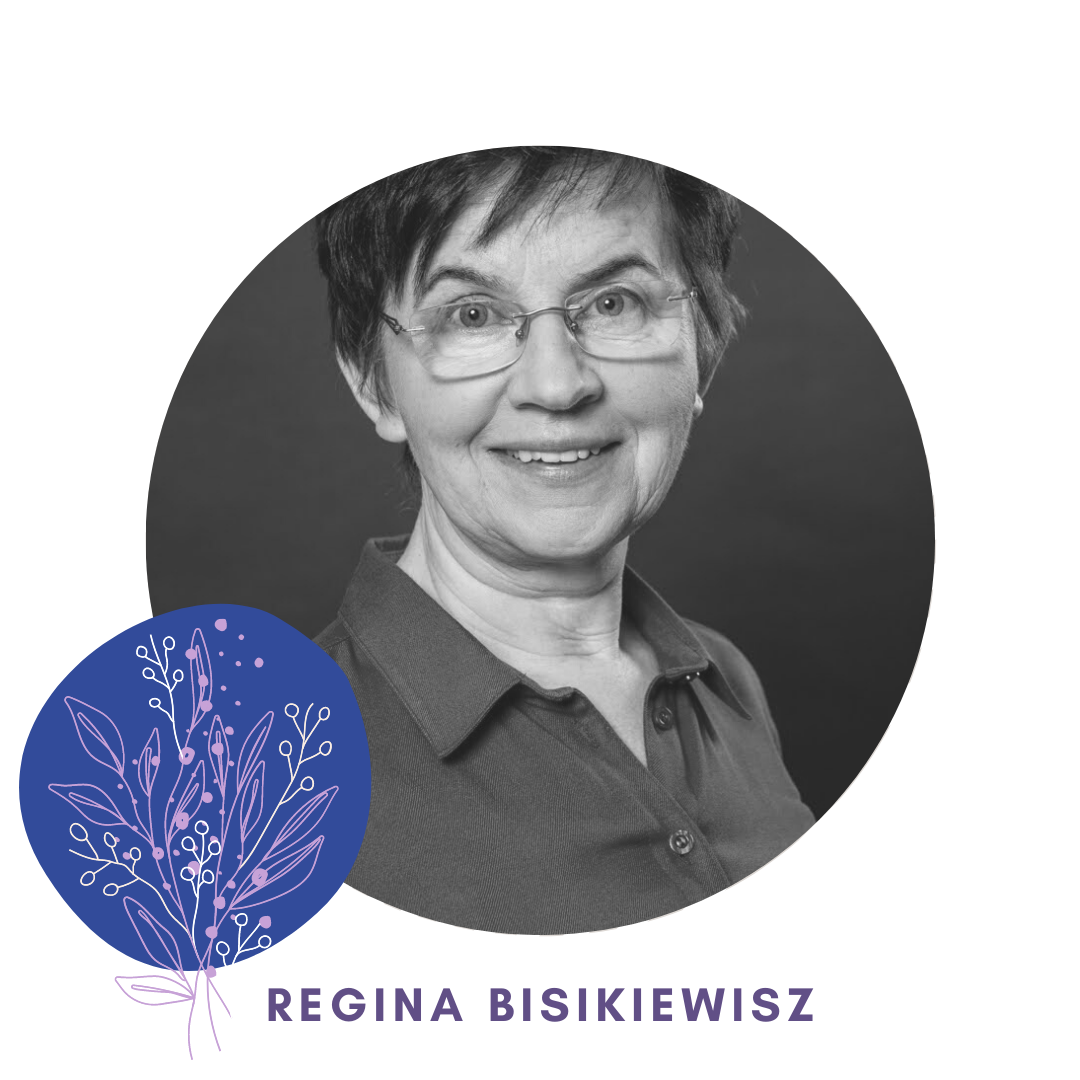
6. Gabriela Tanasan, Romania
Gabriela is an ex-user of mental health services, a survivor of psychiatry, and has been an activist for user involvement and empowerment for more than 20 years. Through her work at the national level, she supported the implementation of the Romanian Mental Health Reform and the development of mental health policies, offering a direct standpoint from users’ and psychiatry survivors’ perspectives. At the European level, through her involvement in the European Network of (ex-) users and survivors of psychiatry, Gabriela advocates for community-based care and deinstitutionalisation, user involvement in all processes that affect their lives, and compliance with CRPD requirements, such as active and meaningful involvement of people with lived experience in decision-making.

7. Edith Morgan, UK
Edith Morgan was a pioneer for mental health in Europe and worked in the field for more than 50 years. She was Deputy Director at Mind UK (former National Association for Mental Health for England), a Vice-President and a President of World Federation for Mental Health (WFMH), and a founding member of the European Regional Council of WFMH, which subsequently became Mental Health Europe. In 1984 Edith joined the new Mental Health Act Commission and its central policy committee, where she visited mental hospitals, including special hospitals, to ensure that patients’ rights are protected. She followed up with complaints from detained patients and drafted a code of practice.
She was only the third woman and the first social worker who became President of WFMH in 1985. Edith was also appointed member of the Order of the British Empire (OBE) in 1994 by the British government for her outstanding and remarkable work for the development of mental health policy in the UK, but also in Europe. Edith will be remembered for spearheading equal partnerships with professionals, users of mental healthcare services, and their families in mental health care. She was known for her endless dedication to ending the stigma attached to mental ill-health and developing community-based solutions.
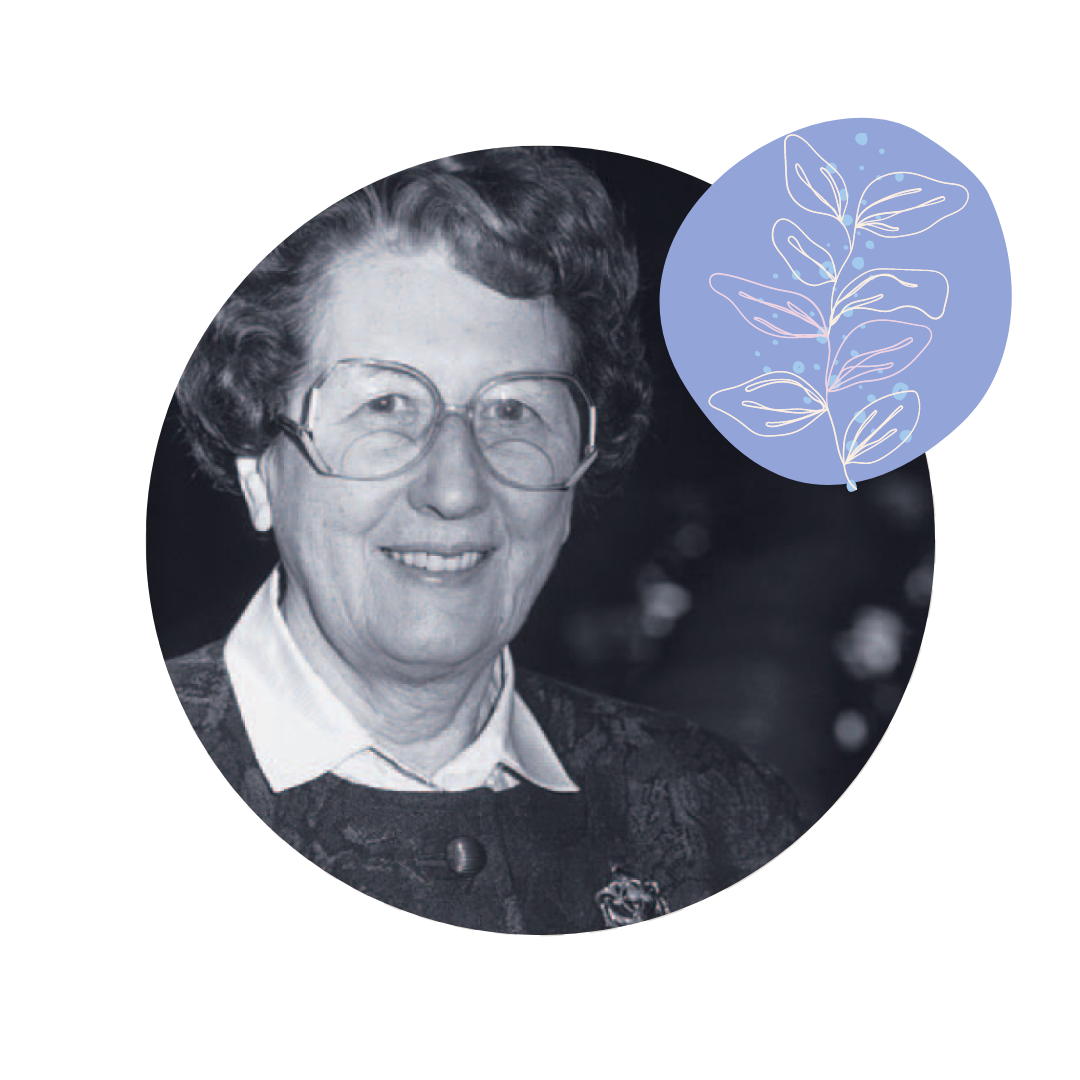
8. Irja Rantanen, Finland
Irja Rantanen was a mental health advocate from Finland who shaped the country’s mental health field during the 20th century. She served as the director of the Mental Health Foundation in Finland from 1961 to 1981. During her time, the Veikkola Work Clinic launched psychiatric rehabilitation measures, established a suicide prevention centre, and drew up a mental health work development programme. Expert chambers and commissions discussed various mental health issues. Besides, she was elected to the board of the European League for Mental Health which was largely male-dominated at the time. Celebrated as a charismatic leader, Irja was known for practicing her speeches in the back seat of taxis in front of the drivers.

9. Josée Van Remoortel, Belgium
Josée’s name has been synonymous with MHE for many years. As the director of the Flemish Association for Mental Health in Belgium and later on as the Executive Director of European Regional Council of WFMH (predecessor of Mental Health Europe), Josée was instrumental in promoting mental health reforms across Europe: the Czech Republic, Baltic countries, Romania, Russia, Bulgaria, Portugal, and Greece. She served as an observer at the Council of Europe’s Working Party on Psychiatry and Human Rights. Together with Edith Morgan, Josée was advocating for gender issues in mental health. Initially, through a project on women’s mental health in several European states. This was followed by campaigning to improve the understanding of violence and harassment in the workplace on women’s mental health in Austria, Cyprus, Greece, Latvia, Lithuania, Romania, Slovenia, and Spain. Today, Josée serves as MHE’s Emeritus President, offering the breadth of her knowledge throughout its long-standing history to support MHE’s work and strategic development.
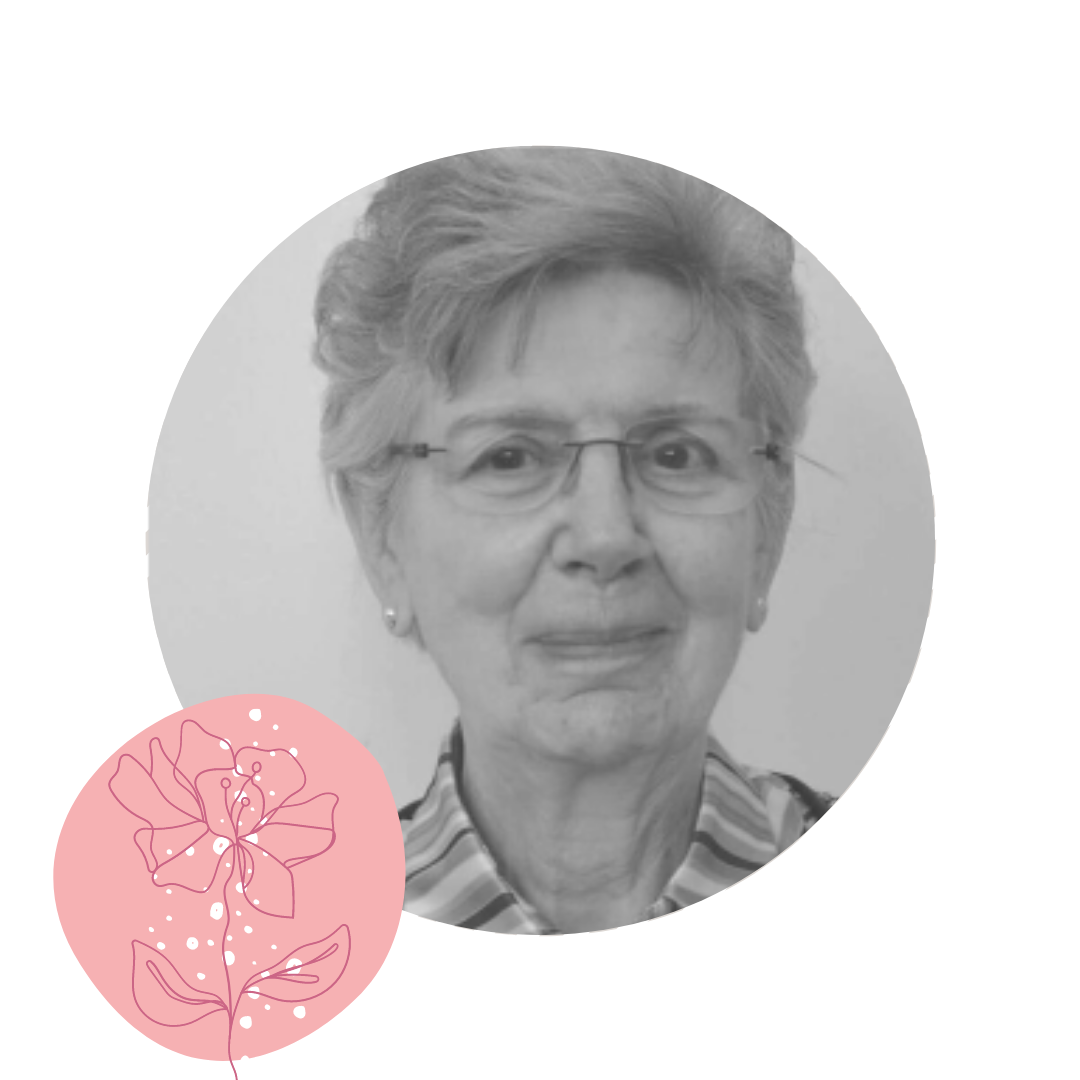
10. Anna Freud, UK
Anna Freud was a British-Austrian psychoanalyst. She is considered one of the founders of psychoanalytic child psychology. She pushed for a scientific focus on children’s mental health and established the Hampstead Child Therapy Course and Clinic (now the Anna Freud National Centre for Children and Families) in 1952. The centre brings together leaders in neuroscience, mental health, social care, and education to improve the quality, accessibility, and effectiveness of mental health provision in the UK.

Do you have a nomination for this list? Please share it with us. We will be periodically updating this list, adding more women pioneering mental health in Europe.
About Mental Health Europe
Mental Health Europe is the largest independent European network organisation working to promote positive mental health, prevent mental health problems and advance the rights of people with mental ill-health or psychosocial disabilities. Learn more about MHE from this video.
Stay connected
Get our latest news, personal stories, research articles, and job opportunities.